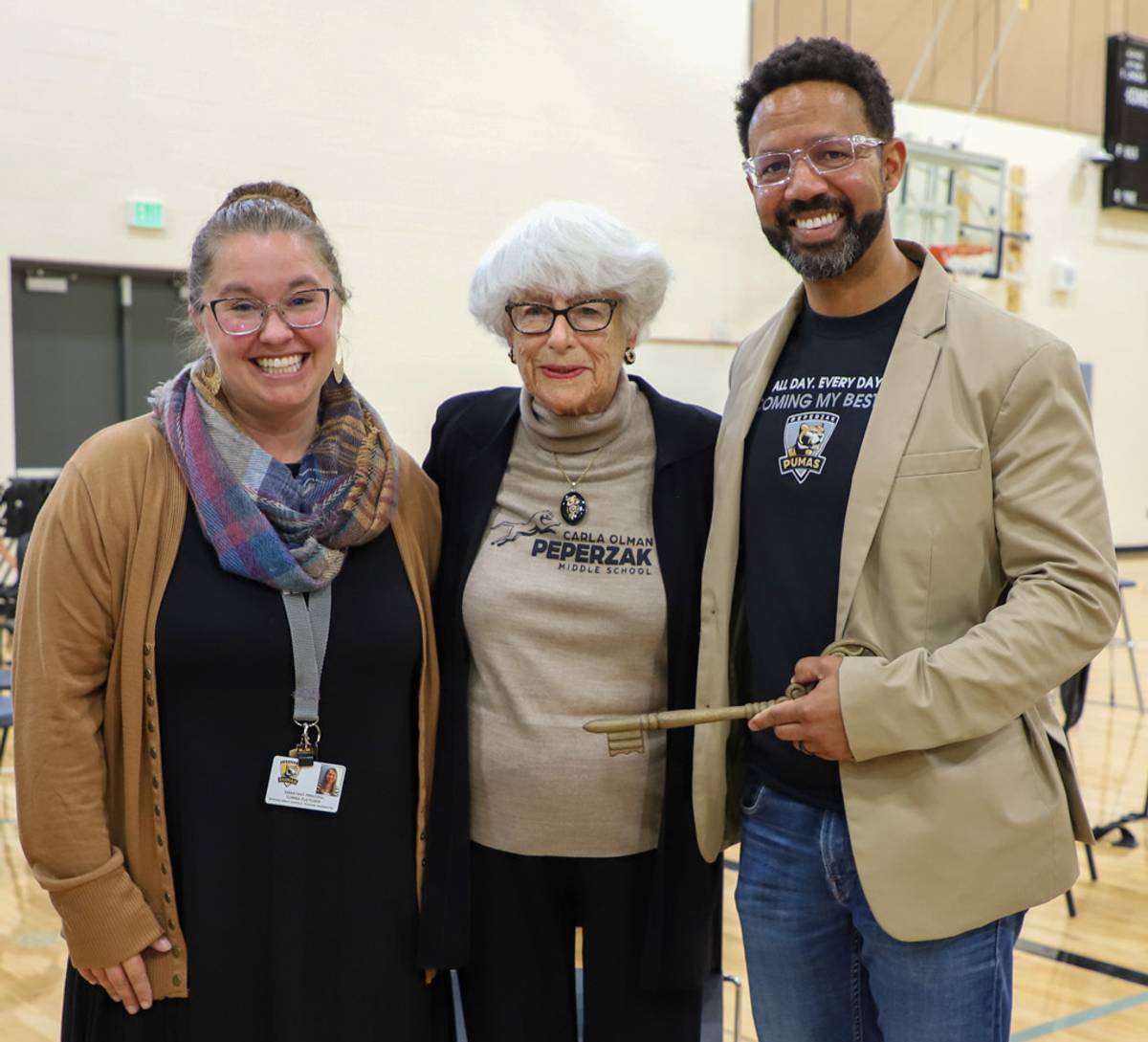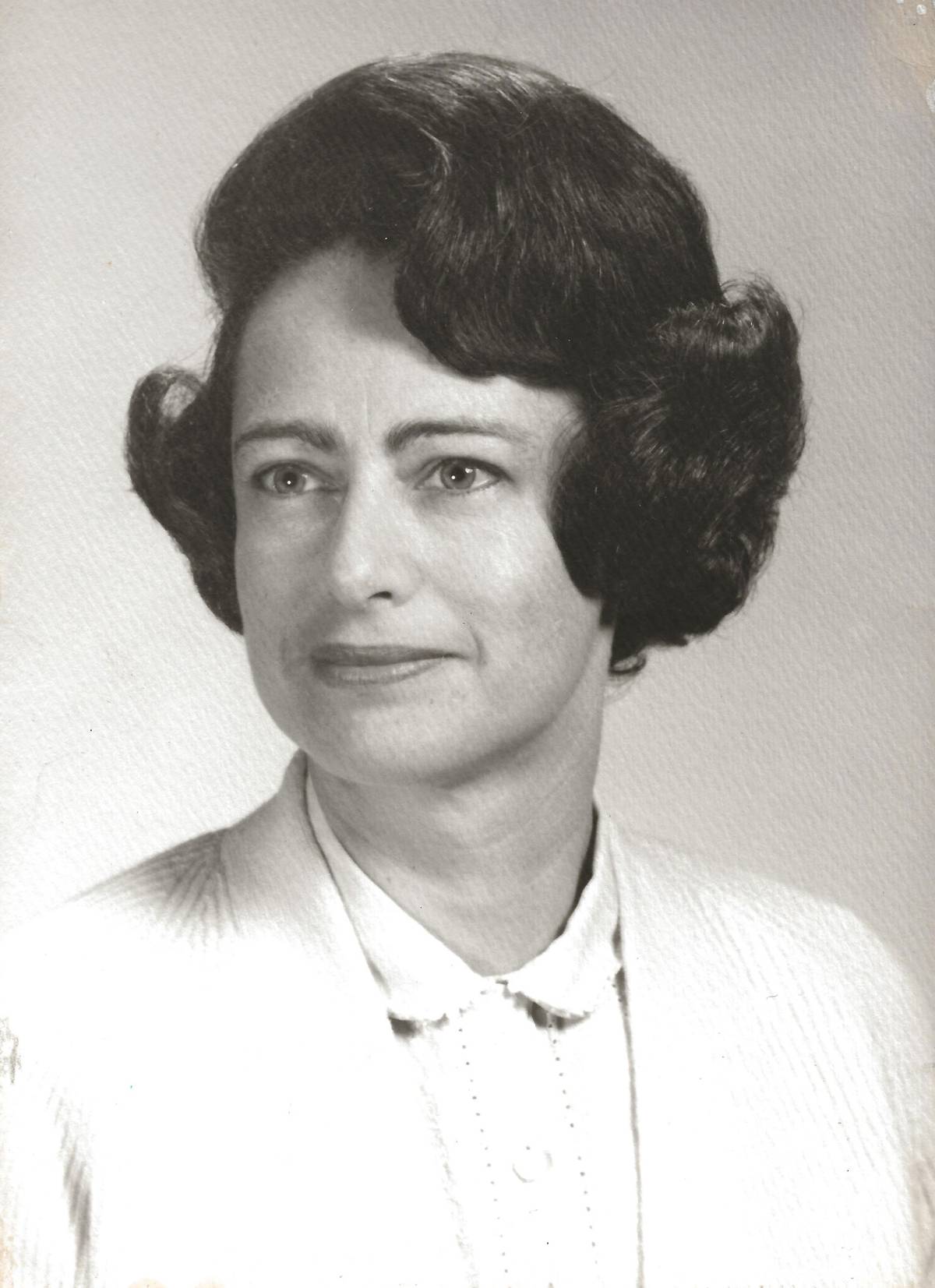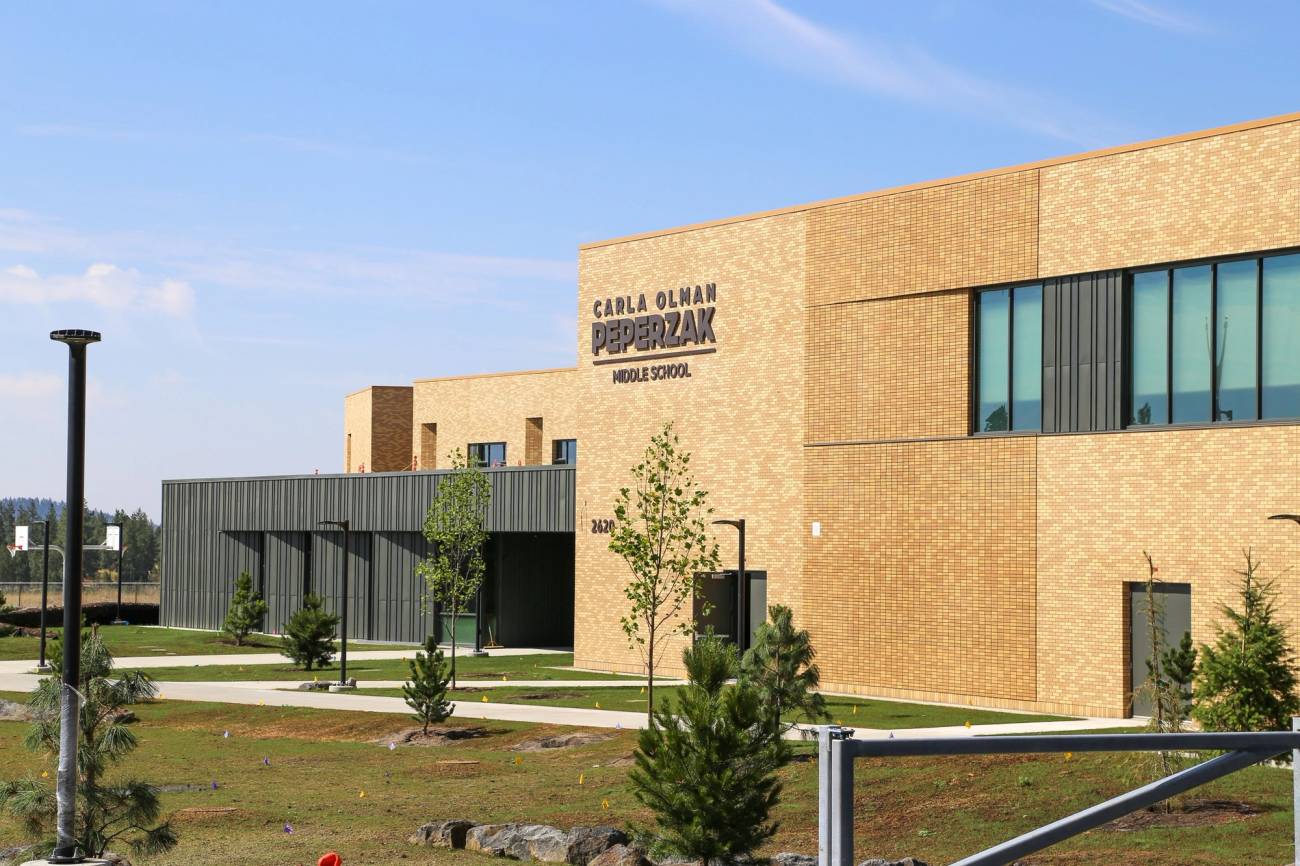A 100-year-old Holocaust survivor recently had a middle school named after her in a region once infamous in the U.S. for its violently racist and antisemitic past.
In September, Carla Peperzak welcomed sixth and seventh graders into the newly built Carla Olman Peperzak Middle School in Spokane, Washington.
“It was surreal. I couldn’t believe it. When I saw the building with my name on it, it became more down to earth. It’s an amazing thing that this happened,” Peperzak said. “I see it as an important part that, hopefully, people will continue to be educated on the Holocaust.”
A resident of Spokane, Peperzak was born in Amsterdam in 1923. She lived in the same neighborhood as Anne Frank and attended Hebrew school with Anne’s older sister Margot. Their families also ran businesses next to each other. Both were forced to close. Peperzak lost 80% of her relatives in the Holocaust. In 1941, she joined the Dutch resistance at 18 years old. She helped save numerous Jews by securing hiding places, creating fake identification papers and ration cards, and publishing an underground newspaper. Peperzak even dressed as a German nurse to rescue her 2-year-old cousin from a train heading to a transit camp that sent Dutch Jews to killing centers in Poland.
“I have a pretty good memory. I’ll be talking about something then something comes back,” she said. “I do not remember all the fine details, but I remember what our life was. And I was always afraid.”
Preserving memories of the Holocaust is important to Spokane Public Schools officials. Aside from the naming, the middle school’s library is stacked with Holocaust education literature that is available to every middle schooler in the district.
“Carla’s story was very powerful to me and others,” said SPS Board President Michael Wiser. “It just felt surprising that somebody who took on the role that she did in that time is living here in our community and still telling her story. It’s a story that really needs to be heard. It’s inspiring, and it felt especially that it could be inspiring to those middle school students.”

Courtesy Spokane Public Schools
Once work started on building the school in 2021, the district requested residents choose names. The finalists were between Peperzak; York, who was the first Black man to travel across North America; and John Oakley, a local teacher who had amyotrophic lateral sclerosis (formerly known as Lou Gehrig’s disease). The school board chose Peperzak because she is currently active in teaching about the Holocaust across Washington state.
“The idea of any name of a school should reflect and represent the community. One of the guiding principles is a person who made a noteworthy contribution to education, community, or society,” Wiser said. “We also wanted to make that choice with equity in mind. We had 54 schools at the time, and they were mostly named after white men, but our student body is not mostly made up of that demographic. This was an opportunity to shift that dynamic to reflect the demographic of the students that we serve.”
At Peperzak Middle School’s open house and dedication ceremony, many people talked about Peperzak’s courage and inspiration, including current Washington state Senate Majority Leader Andy Billig, who called Peperzak a “Holocaust hero.” Lexi Jason, the education program manager for the Holocaust Center for Humanity, said survivors are “history lessons come to life.” The middle school’s principal, Andre Wicks, said Peperzak’s “humility and fierce resolve lives and breathes in these hallways.”
Peperzak moved with her husband (who is now deceased) to Spokane in 2004, and the community embraced her. She has spoken at the Spokane Convention Center multiple times, was named Washington state’s 2020 Person of the Year, and a Gonzaga University professor is filming a documentary about her. She is also a beloved member at both the Conservative and Reform synagogues: Temple Beth Shalom and Congregation Emanu-El, respectively.
“Carla’s amazing. She has this incredibly heroic story, but she’s also just a very warm, down to earth engaging, personable, lovely human being,” said Tamar Malino, the rabbi at both Beth Shalom and Emanu-El. “[The congregants] express a lot of gratitude and admiration and appreciation for what she did in her life. There’s a real understanding of what an incredibly strong human being she is, but it’s also true that people have a really warm, very personal relationship with her in this community. That’s different from, ‘Oh, that person was a Holocaust hero,’ to ‘This is the person that sits next to me at kiddush lunch.”
The middle school naming is just one piece of growing acceptance of Jews in the area. In 2021, Gonzaga dedicated a Jewish Sacred Space with a Torah scroll for student Shabbat and High Holidays services. Chabad Rabbi Yisroel Hahn organizes Holocaust speakers at the Convention Center. And the Holocaust Center for Humanity now has a staff member in Spokane that provides resources for schools and teachers.
All of this is in stark contrast to the region’s past.
Thirty-seven miles northeast of Spokane is Hayden Lake, Idaho. For nearly four decades, the area was home to the Aryan Nations compound. The 20-acre compound drew in hate groups from around the world, including the Ku Klux Klan. Aryan Nations was founded by Rev. Richard Butler in the early 1970s. It continued to be a host to antisemitic and neo-Nazi extremism through the 1990s, and the group inspired other volatile hate groups, including The Order.
Mary Noble and Hershel Zellman moved to Spokane in 1978 during the Aryan Nations’ beginnings. While he said that he always experienced a “low level of antisemitism,” Zellman felt more threatened once the Aryan Nations grew increasingly active, leaving leaflets on cars and poles. In 1980, they amped up acts of intimidation by spray painting antisemitic graffiti on a Jewish resident’s restaurant in Hayden. Over the course of its existence, the Aryan Nations and splinter groups were responsible for murders, bombings, and burning crosses across the U.S.
“We were very much on our guard,” Noble said. “It’s really typical now at synagogues in the United States and Canada, let alone the rest of the world, to have security people there. But we started having security at Temple Beth Shalom back in the ’90s because of the Aryan Nations. We never knew if somebody was going to show up and cause trouble.”

Courtesy Carla Peperzak
In response to the increasing violence, area residents formed the Kootenai County Task Force on Human Relations in 1981. The task force has enacted numerous campaigns, rallies, and racial advocacy. They were instrumental in passing Idaho legislation against harassment and hate crimes.
The Aryan Nations compound was shuttered in 2000 after security guards beat and shot at a family whose car had backfired near the property. The family won a $6.3 million lawsuit, led by legal advocacy organization Southern Poverty Law Center, that bankrupted the group. The area has since been turned into a peace park.
Like Peperzak, Noble’s parents were Holocaust survivors. She grew up hearing their stories and is “fluent in those emotions.” Noble and Zellman hold an annual community observance of the Holocaust at Beth Shalom. They also created the Jessica Stein Memorial Art Contest and Eva Lassman Memorial Writing Contest for regional middle and high school students.
“It’s not enough to remember and be sad; we really want to have an impact on the next generation,” Noble said. “The winners of the contests tell us they learned a lot and parents—all parents, not just the ones from winners—reach out and say ‘thank you’ for doing this because my kids need to learn this.”
Peperzak believes that teaching children about the Holocaust is fundamental to “never again”: “It teaches them because they know very little or nothing about the Holocaust. I tell them that they shouldn’t be hating and how important it is to become knowledgeable. And I talk about respect. If they learn to respect everything around them, then this cannot happen again. Personally, I feel that it makes a difference. Even if it’s only 1%, I’m grateful for it.”
While antisemitism has increased in the area following a nationwide spike, it is not nearly as prevalent as it was during the Aryan Nations days, according to Zellman. He believes that Peperzak Middle School’s naming is a step in the right direction for Spokane.
“I think it represents hope to tamp down hateful events in our region,” Zellman said. “We’ve been to one of the Holocaust speaker engagements and was astounded as to how packed the Convention Center was. And it’s notable that Gonzaga University has several faculty who are Jewish, as well as an active Jewish students group. This year they held High Holidays services on campus for students and faculty. I think all that is an indication that we’ve made some inroads.”
Peperzak turned 100 on Nov. 7. A party was held for her at the middle school with 750 cupcakes for students. Beth Shalom threw a celebration. Plus, she traveled to Colorado Springs for a big birthday bash with family.
“My greatest revenge is my family of 52 people,” said Peperzak, “because [the Nazis] wanted to destroy all that.”
Rachel R. Román is a writer and photographer who has written for Forward magazine and Geekwire.com. She has written and taken pictures for the Jewish Telegraphic Agency, The Cholent and Jewish in Seattle magazine.
